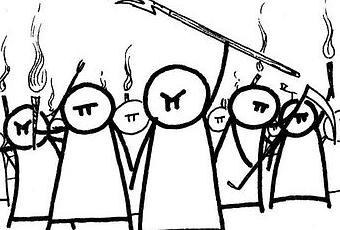What liberals forget is that elections no longer matter, because they are rigged. Moreover, changing governments results in very little change when it comes to the concentration of class power and the decimation of the commons and public good. At the same time, politicians in the age of Reality TV embody Neil Postman’s statement that cosmetics has replaced ideology and has helped to usher in the age of anti-politics. Power hides in the dictates of common sense and wields destruction and misery through the «innocent criminals» that produce austerity polices and delight in a global social order dominated by precarity, fear, anxiety, and isolation. What happens when politics turns into burlesque, when entertainment washes out all that matters, when violence espouses not simply the spectacle, but reaches for the threshold of the intolerable? What happens to a society when baby talk replaces thoughtful dialogue, infantilism becomes the modus operandi of news casters, and trivia becomes the only acceptable mode of narration? What happens when compassion is treated as a pathology and the culture of cruelty becomes a source of humor and an object of veneration? What happens to a democracy when it has lost all semblance of public memory and the welfare state and social contract are abandoned in order to fill the coffers of bankers, hedge fund managers, and the corporate elite?As Colin Crouch asked: How much capitalism can a democracy endure? What language and public spheres do we need to make hope realistic and a new politics possible?







 Users Today : 24
Users Today : 24 Total Users : 35460233
Total Users : 35460233 Views Today : 29
Views Today : 29 Total views : 3418924
Total views : 3418924